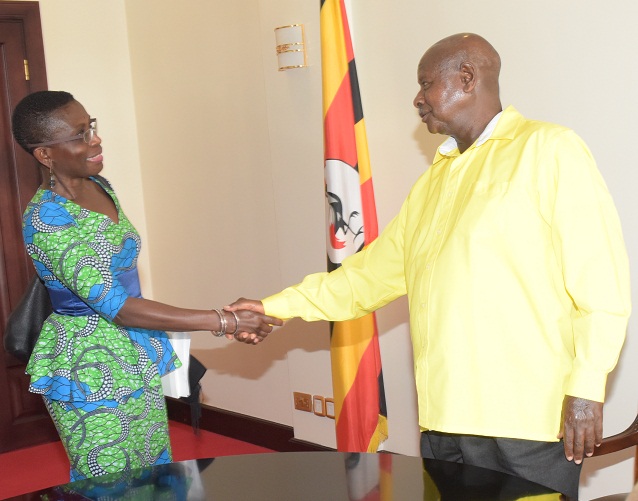
The International Monetary Fund (IMF) has hailed Uganda on infrastructure development as well as efforts to contain inflation amidst challenges of high exchange rates and fluctuating prices.
In its latest report “Recent development’s and prospects, Uganda’s Economic Buffers”, the IMF says Uganda is relatively high on growth, low on inflation, had adequate internal reserves, sustainable external debt and sound financial systems.
The report was part of the discussions Tuesday when President Yoweri Museveni received IMF Director of the African Department Antoinette Monsio Sayeh at State House Entebbe.
Museveni and the IMF delegation discussed economic and financial policies, investment as well as the welfare of Ugandans and economic growth in the entire region. Antoinette Sayeh (read profile here) commended President Museveni and the NRM government on regional integration and common markets.
Museveni said that government has embarked on a rigorous campaign to convert the population from a non monetary to monetary economy through modern agro-production in a country where majority are still practicing substance farming.
The meeting was also attended by the Minister of Finance Matia Kasaija, that of Foreign Affairs Sam Kutesa and the Governor Bank of Uganda Emmanuel Mutebile.
“Sub-Saharan Africa Time for a Policy Reset”
After a prolonged period of strong economic growth, sub-Saharan Africa is set to experience a second difficult year as the region is hit by multiple shocks, the IMF said in its latest Regional Economic Outlook for Sub-Saharan Africa.
According to Monique Newiak of the IMF African Department, ” the steep decline in commodity prices and tighter financing conditions have put many large economies under severe strain, and the new report calls for a stronger policy response to counter the effect of these shocks and secure the region’s growth potential.”
“The report shows growth fell to 3½ percent in 2015, the lowest level in 15 years. Growth this year is expected to slow further to 3 percent, well below the 6 percent average over the last decade, and barely above population growth.”
LATEST IMF REPORT IN FULL
IMF Regional Economic Outlook Sub-Saharan Africa April 2016 by The Independent Magazine
 The Independent Uganda: You get the Truth we Pay the Price
The Independent Uganda: You get the Truth we Pay the Price





